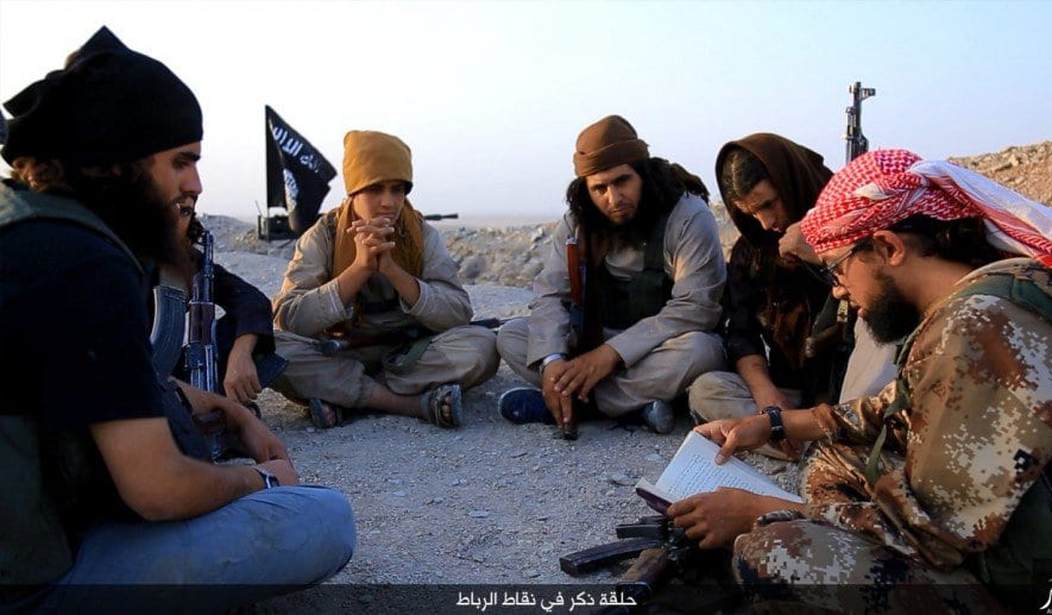An undercover alliance of anti-terrorist citizen journalists based out of the Islamic State’s Syrian capital report that, while ISIS fighters and their families are fleeing toward Raqqa, ISIS leaders have also poached from Syrian lines to try to shore up their largest city in Iraq.
Raqqa Is Being Slaughtered Silently, whose members have been murdered by ISIS even across the border in Turkey for reporting on the Islamic State’s crimes in the occupied city, said Sunday that Mosul “is not secured very well” though ISIS did prepare for the coalition onslaught with “several defense lines, tunnels and earth mounds and prepared oil tanks in order to burn them to create a no fly zone over the city if needed,” wrote one of the group’s founders, Abu Mohammed.
“In the first stage of expulsion ISIS out of Mosul, there has been displacing process towards Raqqa and Deir ez-Zor,” Abu Mohammed wrote. “On the other hand, the number of patrols and checkpoints in Raqqa has been reduced recently. RBSS sources confirmed that the terrorist group has moved its troops from the eastern countryside of Aleppo towards Mosul.”
Still, the number of fighters fleeing toward Raqqa along secure ISIS corridors will eventually make the battle for Raqqa “a lot harder,” he added, not just in terms of the number of ISIS fighters willing to make a last stand but “especially that the U.S. is depending totally on the Kurdish troops which are not welcomed by the civilians in Raqqa.”
Activists have stressed that simultaneous strikes on Raqqa and Mosul would be ideal to deny ISIS both of their major cities as a place to shelter and regroup while stretching their resources — about 10,000 fighters in Mosul, about 5,000 in Raqqa — too thin.
In a visit to Irbil over the weekend, Defense Secretary Ashton Carter said the U.S. wants “to see an isolation operation begin around Raqqa as soon as possible.”
“We are working with our partners there to do just that …there will be some simultaneity to these two operations,” Carter said.
But that would be much trickier for the U.S. to navigate — in Iraq, Washington and Baghdad are allies; in Syria, Washington and Bashar al-Assad are enemies. Assad’s allies including Russia, Iran, Hezbollah and other terrorist groups would be drawn into the mix.
Carter told U.S. troops in his visit to Iraq that “we know it’s not going to be easy, but I’m encouraged by what I see so far. It’s proceeding according to plan. And we’re on track.”
“At the same time, we’re looking at the Mosul campaign, I just want to say, we all need to be looking to the future, as well, and we are, with — that is, to the inevitable expulsion of ISIL from Mosul. But at that point, we’re going to need to be attentive to the reconstruction, the stabilization, and the governance of Mosul, because we all know that in order to make — we will have victory but to make victory stick, you have to have, in the aftermath, decent governance and stabilization and reconstruction,” Carter said.
“I had the — I therefore took the opportunity earlier today to talk to the United Nations and the AID and the Iraqi government coordinators for that phase. That’s not your job. It’s not the Department of Defense’s job. But it’s very important to make sure that that’s ready to go so that the defeat of ISIL in Mosul sticks.”









Join the conversation as a VIP Member